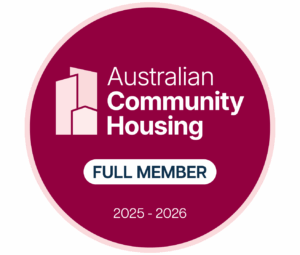 This week, on October 10th, more than 100 countries will recognise World Homeless Day. Emerging 15 years ago, this annual day of recognition was created in online forums by a group of people passionate about giving a voice to the homeless everywhere.
This week, on October 10th, more than 100 countries will recognise World Homeless Day. Emerging 15 years ago, this annual day of recognition was created in online forums by a group of people passionate about giving a voice to the homeless everywhere.
In Australia, it may be surprising to learn that those who need that voice most are veterans. According to research published in the Australasian Psychiatry journal in 2023, almost half a million Australians are veterans and of those currently serving, at least 10% (predominantly males) transition back to civilian life each year. In the veteran population, previous studies found that more than 5% of recently transitioned ADF personnel had become homeless in a 12-month period – a figure that is almost triple the rate of the broader population.
People experiencing homelessness are defined by a range of living situations. They may be living in a tent or a car, or ‘sleeping rough’ on benches, in doorways, in laneways or in parklands. The ABS also counts people sleeping on other people’s couches, in boarding houses, or in severely crowded residences amongst the homeless. When the ABS estimated homelessness at the time of the last census in 2021, the homeless population had increased by 5.2% from the previous census, and men were overrepresented in this, making up 55.9% of those experiencing homelessness.
Veterans become homeless for a range of reasons, the most common being the mental impact of leaving service and the challenges that come for many when transitioning into civilian life. Many struggle with the loss of structure and camaraderie they experienced while serving, as well as the overwhelm of taking on new responsibilities and finding new interests and purpose. Veterans often find it hard to ask for help, having come from a profession so focused on finding solutions and putting their own needs aside in times of crisis to help and support others. It’s this default behaviour that often sees veterans slip through the cracks into homelessness, amidst a range of compounding risk factors.
It was in response to the increasing number of homeless veterans that Veteran Housing Australia was established in 2022. Our focus is on providing safe, stable, and affordable housing options to veterans and their families. These options include crisis accommodation in the form of temporary emergency housing for veterans and their families, support services for those doing it tough (through our parent organisation Carry On), and affordable housing solutions that provide secure, long-term rental housing for veterans and their families who are experiencing homelessness and/or financial hardship.
All of these supports of course play their part, however, community housing is a critical part of the solution. Many veterans are vulnerable to unique challenges as they become civilians and the stability and security that comes with a home as this adjustment happens can save lives. Veteran Housing Australia’s vision is to end homelessness and with the support of projects like the Victorian Government’s Big Build and the Federal Government’s $30 million Veterans’ Acute Housing Program, this may one day be possible.
The World Homeless Day initiative suggests a range of things that everyday people can do this month to take action – from taking up a collection amongst your community of goods or money to donate to local charities, to writing to local politicians about policy change, or deciding to become a volunteer yourself.
If you are a veteran, know a veteran or are a family member of a veteran who is going through difficulties, you can contact the Australian Government’s Department of Veterans’ Affairs for assistance or contact us at Veteran Housing Australia and we can point you in the right direction.




